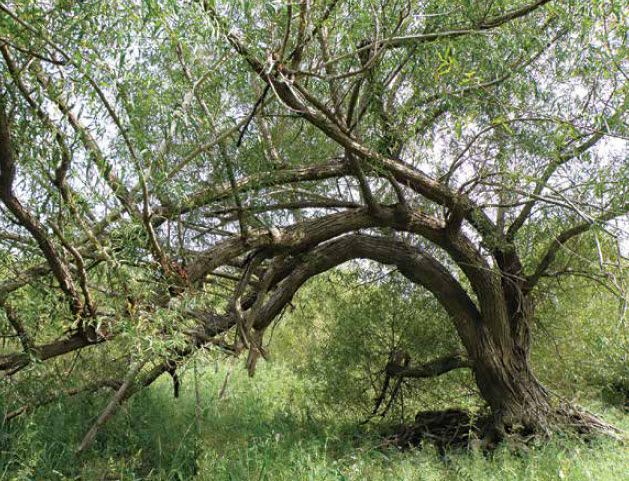 By: Eric Betts
By: Eric Betts
The story is told of a severe storm that ripped through an isolated neighborhood one night. All of the oak trees and pine trees split and fell to the ground due to the force of the winds, but one family in particular noticed that the willow tree was still standing.
While giving a eulogy for a beloved member of the community, many found comfort in the words I shared about the strength of the willow tree. Most of my thoughts given in the eulogy are being conveyed in this article. I shared that the willow thrives because it bends without breaking in the harshest storms, symbolizing resilience and the ability to weather life’s most painful losses. Mothers who have lost a son can find strength in the willow’s story, reminding them of their own resilience in the face of deep sorrow. We also think about the tremendous grief of the family of Stephen Perkins, a high-profile case in our area, who was recently killed in his front yard. We also think about the collective grief of the community members who empathize with his family’s pain.
The story of the willow tree is a parable of resilience and strength. Often found near water, the willow is known for its flexibility and adaptability to harsh conditions. Unlike other trees that break under the powerful winds of a storm, the willow bends and sways. It might bow down until its branches touch the ground, but it never snaps or gives way entirely. Instead, it endures, standing tall once the storm passes. This beautiful metaphor serves as a reminder to those grieving the loss of a loved one. Just like the willow, they too can bend under the weight of their sorrow, yet not break.
Through great loss, we are reminded of the resilience of the willow tree. Despite the harshest of storms, the willow tree bends but does not break, finding strength in its flexibility. Similarly, we, who were fortunate to partake in our loved one’s journey must emulate the willow. We will bend under the weight of our grief but not break.
The wind that bends the willow shall not break it because it serves not as a destructive force, but as a sculptor, shaping the willow into a symbol of resilience. Similarly, our trials — the tempests of our lives — are not meant to shatter us, but to shape us, to make us stronger and more resilient, like a willow in the wind. The wind that bends the willow shall not break it, because it is deeply rooted. The wind that bends the willow will not break the grieving ones, because we are anchored by deep roots of love, faith, and community, and we are anchored in our shared memories of our loved one and our collective strength. The wind that bends the willow shall not break it, because God’s constant love and support surrounds it, just as He surrounds us now, providing comfort and peace in our time of sorrow.
The wind that bends the willow shall not break it, because just like the willow tree’s flexible branches that bend and sway with the wind reducing the risk of damage, we too are flexible in our grief, bending but not breaking. We can grieve and still love, still have the capacity to smile, still help others, still be a voice for the hurting, and still fulfill our purpose. The willow tree’s flexibility allows its branches to bend with the wind, rather than resist it. This bending does not weaken the willow but rather strengthens it, training its branches for the storms that are ahead.
The wind that bends the willow shall not break it, because over time, this repeated bending can even influence the tree’s growth patterns, leading to a more wind-resistant form. In the same way, our sorrow shapes us, not into beings of despair, but into creatures of extraordinary tenacity, capable of weathering the fiercest storms. Sometimes the willow will bend to the extent that its top may scrape the ground, but when the wind goes away, it is able to snap back into form. We too may be bowed so deeply by our grief that we feel we can’t go any lower, but somehow, we are able to snap back into form in spite of what we endure.
Strength through the wind does not mean masking our pain or stifling our tears. In the face of grief, strength is not about the absence of pain but the ability to continue growing in spite of it. Yes, we may bend to the wind, but we certainly do not break. Just as the sturdy willow thrives amidst the wind, we too find a way to thrive amidst our heartaches. We bend, but we endure, for we are shaped by our experiences, not destroyed by them. And so, we continue to grow, to live, and to love, forever changed, yet unbroken.
By: Eric Betts
Udemy Instructor in Religion, Leadership and Ethics






